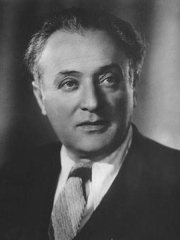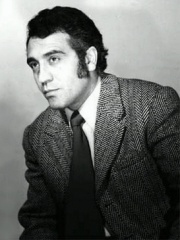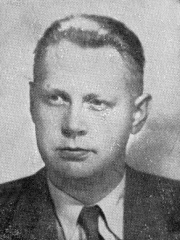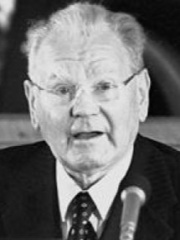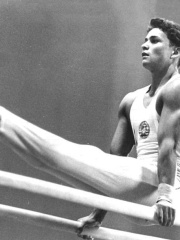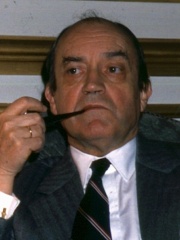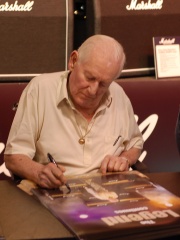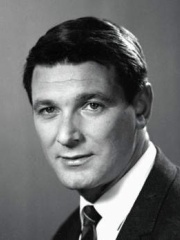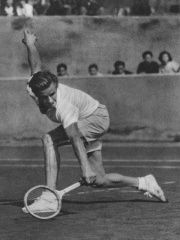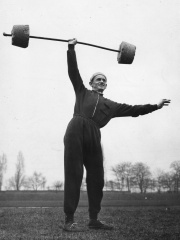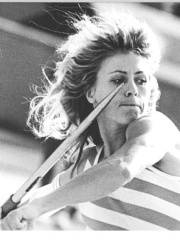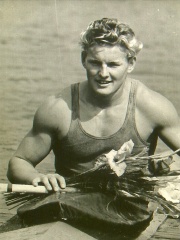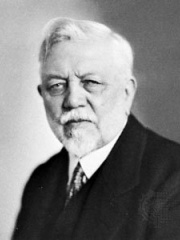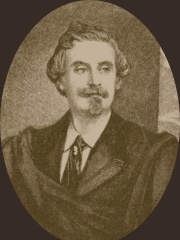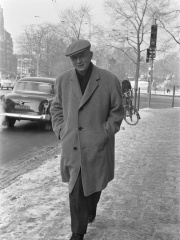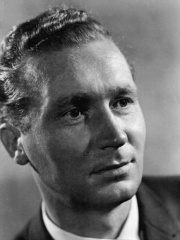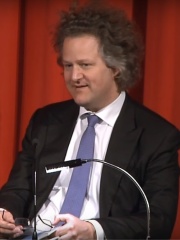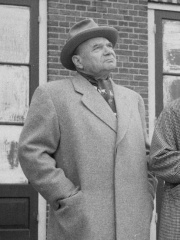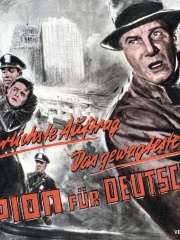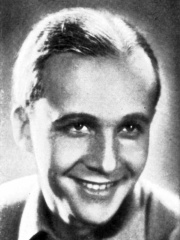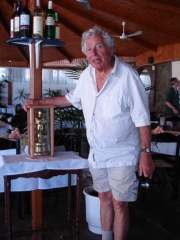Film Director
Kurt Maetzig
1911 - 2012
EN.WIKIPEDIA PAGE VIEWS (PV)
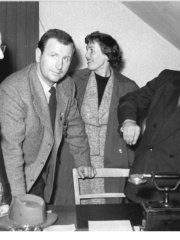
 Kurt Maetzig
Kurt Maetzig
His biography is available in 18 different languages on Wikipedia. Kurt Maetzig is the 1,098th most popular film director (down from 985th in 2024), the 4,766th most popular biography from Germany (down from 4,444th in 2019) and the 57th most popular German Film Director.
Memorability Metrics
Page views of Kurt Maetzig by language
Among Film Directors
Among film directors, Kurt Maetzig ranks 1,098 out of 2,041. Before him are David Cherkassky, Štefan Uher, Gaston Kaboré, Christopher Landon, Eduardo Serra, and Larry Cohen. After him are Kei Kumai, Mitchell Leisen, Fridrikh Ermler, Edmond Keosayan, Peter Farrelly, and Danièle Thompson.
Most Popular Film Directors in Wikipedia
Go to all RankingsDavid Cherkassky
1931 - 2018
HPI: 55.63
Rank: 1,092
Štefan Uher
1930 - 1993
HPI: 55.63
Rank: 1,093
Gaston Kaboré
1951 - Present
HPI: 55.63
Rank: 1,094
Christopher Landon
1975 - Present
HPI: 55.63
Rank: 1,095
Eduardo Serra
1943 - 2025
HPI: 55.63
Rank: 1,096
Larry Cohen
1936 - 2019
HPI: 55.62
Rank: 1,097
Kurt Maetzig
1911 - 2012
HPI: 55.61
Rank: 1,098
Kei Kumai
1930 - 2007
HPI: 55.59
Rank: 1,099
Mitchell Leisen
1898 - 1972
HPI: 55.59
Rank: 1,100
Fridrikh Ermler
1898 - 1967
HPI: 55.57
Rank: 1,101
Edmond Keosayan
1936 - 1994
HPI: 55.57
Rank: 1,102
Peter Farrelly
1956 - Present
HPI: 55.56
Rank: 1,103
Danièle Thompson
1942 - Present
HPI: 55.55
Rank: 1,104
Contemporaries
Among people born in 1911, Kurt Maetzig ranks 289. Before him are Germano Boettcher Sobrinho, Lisa Fonssagrives, Sten Suvio, Jack Finney, Jean Cayrol, and Alan Hovhaness. After him are Sakari Tuomioja, Maurice Perrin, Constantin Stanciu, Tokiharu Abe, Heinrich Mark, and Bruno Heim. Among people deceased in 2012, Kurt Maetzig ranks 315. Before him are Phyllis Diller, Klaus Köste, Ian Abercrombie, Phillip V. Tobias, Claude Cheysson, and Jim Marshall. After him are Luis Aponte Martínez, Aleksandr Belyavsky, Art Larsen, Ervin Zádor, István Rózsavölgyi, and Alketas Panagoulias.
Others Born in 1911
Go to all RankingsGermano Boettcher Sobrinho
SOCCER PLAYER
1911 - 1977
HPI: 55.78
Rank: 283
Lisa Fonssagrives
MODEL
1911 - 1992
HPI: 55.77
Rank: 284
Sten Suvio
BOXER
1911 - 1988
HPI: 55.76
Rank: 285
Jack Finney
WRITER
1911 - 1995
HPI: 55.72
Rank: 286
Jean Cayrol
WRITER
1911 - 2005
HPI: 55.67
Rank: 287
Alan Hovhaness
COMPOSER
1911 - 2000
HPI: 55.65
Rank: 288
Kurt Maetzig
FILM DIRECTOR
1911 - 2012
HPI: 55.61
Rank: 289
Sakari Tuomioja
POLITICIAN
1911 - 1964
HPI: 55.60
Rank: 290
Maurice Perrin
CYCLIST
1911 - 1992
HPI: 55.60
Rank: 291
Constantin Stanciu
SOCCER PLAYER
1911 - 1986
HPI: 55.51
Rank: 292
Tokiharu Abe
BIOLOGIST
1911 - 1996
HPI: 55.48
Rank: 293
Heinrich Mark
POLITICIAN
1911 - 2004
HPI: 55.33
Rank: 294
Bruno Heim
RELIGIOUS FIGURE
1911 - 2003
HPI: 55.31
Rank: 295
Others Deceased in 2012
Go to all RankingsPhyllis Diller
ACTOR
1917 - 2012
HPI: 55.72
Rank: 309
Klaus Köste
GYMNAST
1943 - 2012
HPI: 55.69
Rank: 310
Ian Abercrombie
ACTOR
1934 - 2012
HPI: 55.69
Rank: 311
Phillip V. Tobias
ARCHAEOLOGIST
1925 - 2012
HPI: 55.66
Rank: 312
Claude Cheysson
POLITICIAN
1920 - 2012
HPI: 55.62
Rank: 313
Jim Marshall
BUSINESSPERSON
1923 - 2012
HPI: 55.61
Rank: 314
Kurt Maetzig
FILM DIRECTOR
1911 - 2012
HPI: 55.61
Rank: 315
Luis Aponte Martínez
RELIGIOUS FIGURE
1922 - 2012
HPI: 55.60
Rank: 316
Aleksandr Belyavsky
ACTOR
1932 - 2012
HPI: 55.56
Rank: 317
Art Larsen
TENNIS PLAYER
1925 - 2012
HPI: 55.55
Rank: 318
Ervin Zádor
POLITICIAN
1935 - 2012
HPI: 55.53
Rank: 319
István Rózsavölgyi
ATHLETE
1929 - 2012
HPI: 55.42
Rank: 320
Alketas Panagoulias
SOCCER PLAYER
1934 - 2012
HPI: 55.41
Rank: 321
In Germany
Among people born in Germany, Kurt Maetzig ranks 4,769 out of NaN. Before him are David Garrett (1980), Petra Felke (1959), Mirjam Pressler (1940), Willi Giesemann (1937), Dieter Krause (1936), and Botho Strauß (1944). After him are Theodor Ludwig Wilhelm von Bischoff (1807), Anita Rée (1885), Hermann Hirt (1865), Elias Holl (1573), Adolf Friedrich von Schack (1815), and Thomas Quasthoff (1959).
Others born in Germany
Go to all RankingsDavid Garrett
MUSICIAN
1980 - Present
HPI: 55.63
Rank: 4,763
Petra Felke
ATHLETE
1959 - Present
HPI: 55.62
Rank: 4,764
Mirjam Pressler
WRITER
1940 - 2019
HPI: 55.62
Rank: 4,765
Willi Giesemann
SOCCER PLAYER
1937 - 2024
HPI: 55.61
Rank: 4,766
Dieter Krause
ATHLETE
1936 - 2020
HPI: 55.61
Rank: 4,767
Botho Strauß
WRITER
1944 - Present
HPI: 55.61
Rank: 4,768
Kurt Maetzig
FILM DIRECTOR
1911 - 2012
HPI: 55.61
Rank: 4,769
Theodor Ludwig Wilhelm von Bischoff
PHYSICIAN
1807 - 1882
HPI: 55.60
Rank: 4,770
Anita Rée
PAINTER
1885 - 1933
HPI: 55.60
Rank: 4,771
Hermann Hirt
LINGUIST
1865 - 1936
HPI: 55.60
Rank: 4,772
Elias Holl
ARCHITECT
1573 - 1646
HPI: 55.60
Rank: 4,773
Adolf Friedrich von Schack
WRITER
1815 - 1894
HPI: 55.60
Rank: 4,774
Thomas Quasthoff
MUSICIAN
1959 - Present
HPI: 55.59
Rank: 4,775
Among Film Directors In Germany
Among film directors born in Germany, Kurt Maetzig ranks 57. Before him are Helmut Käutner (1908), Frank Beyer (1932), Helmut Dietl (1944), Edward Berger (1970), Curtis Bernhardt (1899), and Florian Henckel von Donnersmarck (1973). After him are Gerhard Lamprecht (1897), Georg Jacoby (1882), Kurt Hoffmann (1910), Werner Klingler (1903), Erik Ode (1910), and Walter Lassally (1926).
Helmut Käutner
1908 - 1980
HPI: 56.61
Rank: 51
Frank Beyer
1932 - 2006
HPI: 56.47
Rank: 52
Helmut Dietl
1944 - 2015
HPI: 56.41
Rank: 53
Edward Berger
1970 - Present
HPI: 56.07
Rank: 54
Curtis Bernhardt
1899 - 1981
HPI: 55.85
Rank: 55
Florian Henckel von Donnersmarck
1973 - Present
HPI: 55.72
Rank: 56
Kurt Maetzig
1911 - 2012
HPI: 55.61
Rank: 57
Gerhard Lamprecht
1897 - 1974
HPI: 55.21
Rank: 58
Georg Jacoby
1882 - 1964
HPI: 54.60
Rank: 59
Kurt Hoffmann
1910 - 2001
HPI: 54.21
Rank: 60
Werner Klingler
1903 - 1972
HPI: 54.16
Rank: 61
Erik Ode
1910 - 1983
HPI: 54.06
Rank: 62
Walter Lassally
1926 - 2017
HPI: 53.49
Rank: 63








